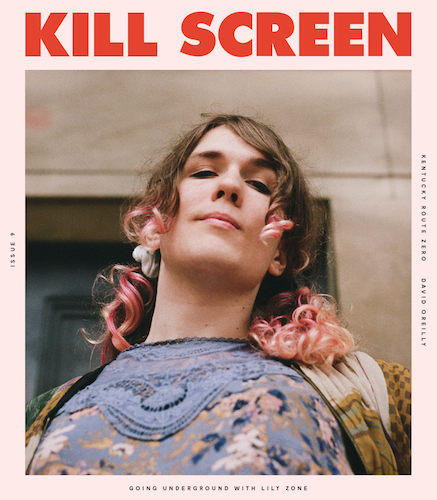
“Is this the tipping point for the massive, mainstream growth of esports?” wondered Darren Heitner, at Forbes, on December 31st. It’s a fair question to ask, after a momentous year for the world of competitive gaming. In 2016, a CS:GO tournament played on a major broadcast network, TBS; Overwatch was released in May and rose in popularity more quickly than any esport in history; Dota 2 somehow broke its prize pool for The International yet again; the League of Legends world finals were seen by 43 million people, 12 million more than the finals of the NBA. The future seems bright, at least in the world of esports. It wouldn’t be hard to make an argument that 2017 might just be the breakout moment for esports, when professional Smash players will be catapulted to the same heights of celebrity as a Michael Phelps, or perhaps a Serena Williams.
Of course, Heitner wasn’t writing about 2017; he was writing about the bright, shining potential of 2016, after 2015 proved to be a stupendous year for esports’ growth and popularity. And sure, 2015 saw some truly record numbers for the world of esports—but then again, so did 2014, which Red Bull’s Chris Higgins declared “esports’ biggest year ever,” writing that “When we’re looking back at this year from the distant future…we’ll see 2014 as the year esports got it together.” But, while we’re at it, 2012 looked pretty good too, with Forbes’ Paul Tassi calling it “The Year of Esports.” Coincidentally, Patrick Miller called 2011 exactly the same thing. Read the headlines, and it starts to seem every year is “The Year of Esports.”
So what are the chances that 2016 really was “the year esports really, actually, made it, but BIG this time?” What are the odds that the incremental changes we saw this year will add up to a revelatory 2017, the Golden Age every esport writer seems to want so badly? Well, there’s certainly a lot to look forward to.
One of the gaming industry’s most storied and influential developers, to start, may have finally hopped onto the bandwagon: while details are speculative at best, the announcement trailer for Nintendo’s new mobile/console hybrid, the Switch, ends with the unmistakable visuals of a live esports event. But a crowd of hyped up fans going nuts over an in-game showdown (in this case, Splatoon) hasn’t always been a welcome image for the company.

Traditionally, Nintendo stayed as far from the world of esports as they could manage. Any embrace of the competitive gaming world, they feared, might alienate the casual audience on which they’d built their Mushroom empire. This came to a head in 2013, when Nintendo denied EVO the right to not only stream the Super Smash Bros. Melee tournament, but even host the game at all. This decision would have been an almost fatal blow to the Smash community, had it not been overturned after an outcry from fans.
Who knows whether Nintendo’s better attitude towards esports will be represented in anything more than advertisements, but 2017 could see the company engaging more with their existing Smash 4 and Melee communities. It’s possible that we’ll even see a new competitive title, bringing Nintendo’s signature controlled, cartoonish chaos back to the modern world of esports.
The game industry certainly isn’t waiting on Nintendo to supply new esports-capable titles, though. LawBreakers, the game which Cliff Blezsinski described as “Mortal Kombat to Overwatch’s Street Fighter,” is slated for a 2017 release date. Paragon, perhaps the first credible attempt at a AAA-funded MOBA, is likely to appear in this year as well, and has a small but dedicated community plugging away at the open beta. Bethesda has also decided to throw their hat into the ring with Quake Champions, though their class-based shooter will have some serious competition if we see it in 2017.

But we don’t even have to look out for new titles to be excited about esports in 2017. Just look at Overwatch, which is already offering prize pools established esports have strived for years to achieve despite being less than eight months from release. Odds are, it will only get bigger in 2017, especially with the founding of Blizzard’s Overwatch League, which will see teams representing cities across the US for the first time in the history of esports.
As to whether concrete geographical locations will help or hurt the competitive Overwatch scene, that remains to be seen; voices have been raised on both sides of the argument. Blizzard is a true veteran in the esport space, though, and isn’t shy about committing time, hands and resources to support the pro gaming side of their titles, as they’ve shown with Starcraft, Hearthstone and Heroes of the Storm.
Was 2016 ultimately the tipping point for esports that Heitner believed it would be, the year that would spill esports off the countertop of internet culture and onto the wide, tiled floor of the mainstream? Well, no, not really. When I go home for the holidays, I still have to explain to my family who is paying these boys to sit at their dang computers all day. I have yet to see Sang-hyeok “Faker” Lee on any TV spots trying to sell me a dope new mousepad. But the esports industry’s annual worth continues to grow, players are getting better representation and treatment from their teams, and Time Magazine named Syed “Suma1l” Hassan one of the most influential teens of the year.
And, come to think of it, Søren “Bjergsen” Bjerg did have his name used against his will to try and sell some performance enhancing bullshit. It’s not quite a TV spot for Faker, but hey—there’s always 2017.










